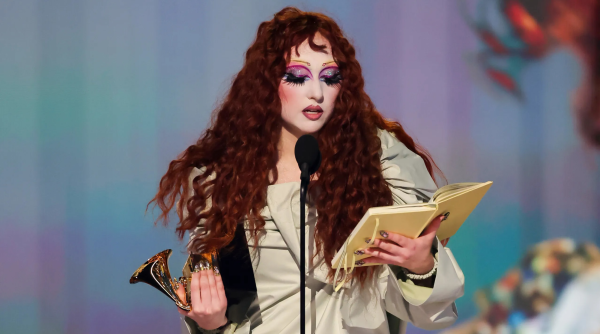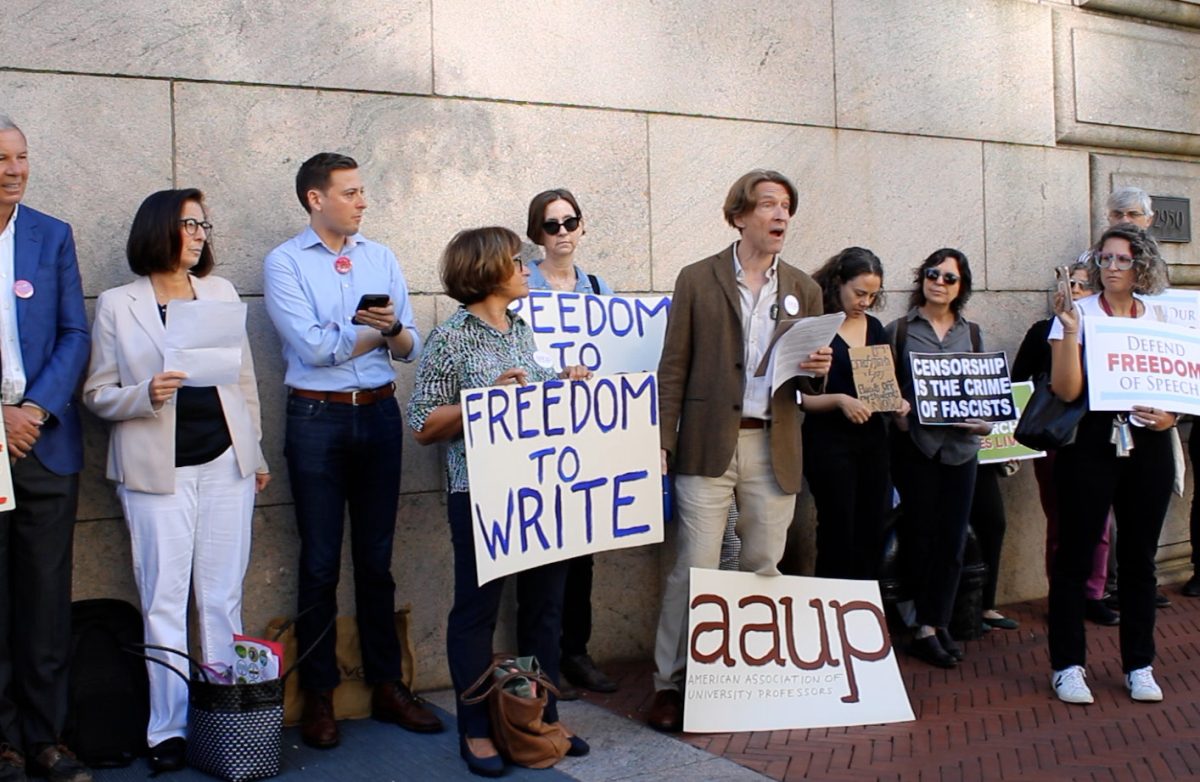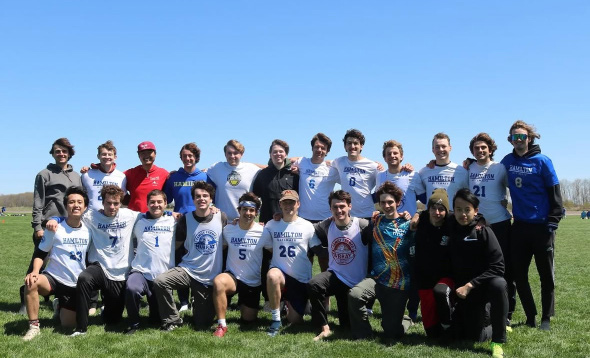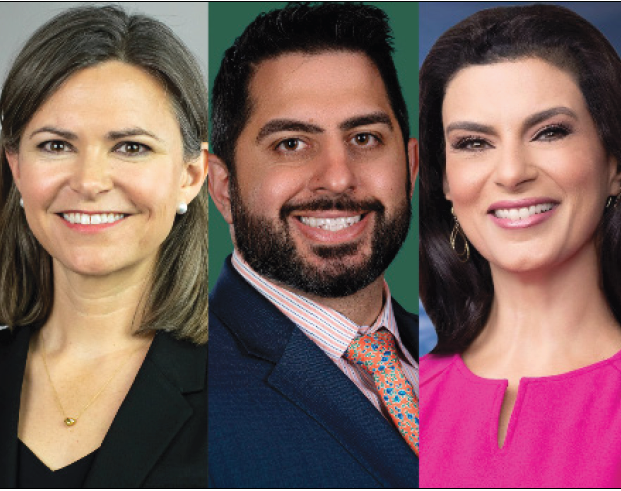
It is 2025 and Chappell Roan is the proud owner of a Grammy for Best New Artist. The six total nominations that Roan received, all of which were part of her first time being recognized by the Academy, would make it seem that she has just burst onto the scene. With the 2024 song “Good Luck, Babe!” getting thrice recognized for its grandiosity and her most recent album, The Rise And Fall Of A Midwest Princess (2024) as the justification for the rest of her nominations, Roan’s “Best New Artist” designation may seem fitting. But now let us take it back to 2020—in the heat of the COVID-19 pandemic—where instead of talking to the world on the Grammys stage, Roan was talking to alumni Rob Lane ’21 on his Hamilton College WHCL show The Jubilee Line.
Roan, between her personal encounters with paparazzi or her direct engagement with her fanbase through social media, has always had a grassroots approach toward cultivating her persona and building a following that is enticed by both Roan the artist and the person. This style of publicity was especially tailored to thrive during the pandemic era of heightened parasocial relationships between artists and fans and through social media becoming the default manner of communication for those trying to reach a broad audience. Lane, who now works at WBUR of NPR in Boston, Massachusetts, understood both the pandemic celebrity environment and Roan’s own format of engagement and decided to reach out to the budding artist for an interview. Having seen Roan open for British singer Declan McKenna—of “Brazil” fame—in Syracuse, Lane was impressed. Roan was on the cusp of fully integrating into the formal music world after having signed to Atlantic Records, but Lane nonetheless contacted her manager, and—appropriate for her character—was put directly in touch with Roan to coordinate the interview. I caught up with Lane to get a sense of how the interview came together and to gather some thoughts that may have developed in hindsight.
Lane had no idea that Roan would become the version of herself that she is now, between performing at the Grammys and winning one herself to having a #1 global song on Billboard, but he “always thought she was incredibly talented.” Lane interviewed Roan at a time of promise and what would eventually become the delusion of major label grandeur with Atlantic Records; in retrospect, he is curious about how she kept moving forward in spite of the external challenges that seemed to find her early in her career. This past summer was a full-circle moment for Lane—and unknowingly for Roan—when he witnessed her perform at the Boston Calling Music Festival to thousands of screaming and adoring fans. “It kind of took your breath away,” Lane said.
Connecting with a future celebrity of Roan’s magnitude, even if it was unforeseeable at the time, may seem daunting for current Hamilton WHCL hosts and journalists, as well as prospective career ones, but Lane has a simple resolution for this kind of hesitance: “just do it.” Lane suggests looking for more independent or lesser-known artists—who have less than a million Spotify streams—and then just reaching out to whatever contact information is available because ultimately, the worst-case-scenario of a denial or no response has “absolutely no downside,” Lane said. Who knows, one day you might stumble upon “the next Chappell Roan” according to Lane. And once you attain that desired interview, be prepared and familiar with the artist’s work, but there is no need to over-prepare to the extent of insincerity, especially if you are a true fan of whoever you talk to. This is evident in Lane’s 2020 interview with Roan; the conversational approach is best suited to invite comfort and avoid what could feel like an interrogation for the artist.
Roan’s ascendance from an indie act to a show-stopping mainstream figurehead was unpredictable, even if not wholly unexpected. For future radio show hosts, journalists, music executives, etc., it serves as a reminder that perseverance and effort can sometimes overwhelm whatever internal or external obstacles may be in the way of taking that next big risk. Don’t overthink it.
















